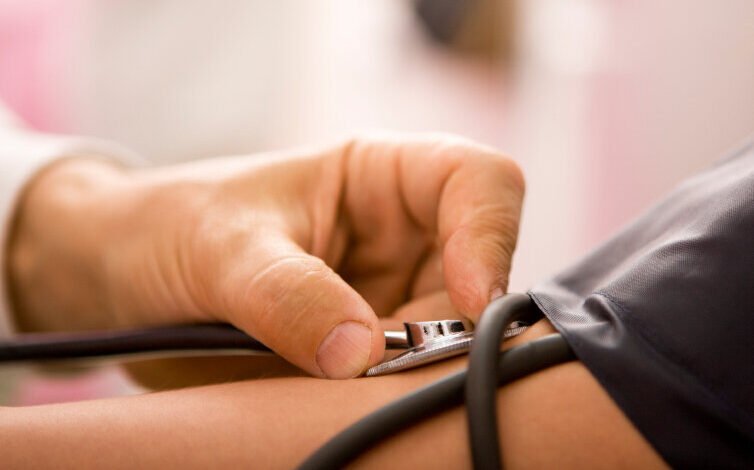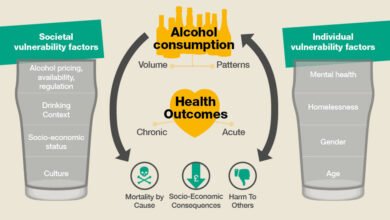What Happens If You Check Your Blood Pressure Too Often?

Monitoring blood pressure is a crucial aspect of managing health, especially for individuals with hypertension or other cardiovascular issues. As modern medical devices and mobile health applications become more accessible, many people have started checking their blood pressure at home. While regular monitoring is essential, you might wonder if checking your blood pressure too frequently could lead to problems. In this article, we will explore the potential effects of checking your blood pressure too often, the psychological and physical impacts, and how to balance monitoring for optimal health.
The Importance of Blood Pressure Monitoring
Blood pressure is a critical indicator of cardiovascular health. High blood pressure, or hypertension, is known as a “silent killer” because it often has no symptoms but can lead to serious conditions such as heart disease, stroke, and kidney failure. For this reason, healthcare professionals emphasize the importance of monitoring blood pressure regularly, particularly for individuals with known risk factors.
Home blood pressure monitoring has grown in popularity as devices become more accurate and user-friendly. Products like those available from Hingmed provide individuals with the ability to check their blood pressure without the need for frequent doctor visits. The rise of telemedicine and health technology means that patients can now manage their health more proactively.
How Often Should You Check Your Blood Pressure?
The frequency of blood pressure checks depends on individual health conditions. For those diagnosed with hypertension, daily monitoring may be recommended by healthcare providers, especially when adjusting medications or treatments. However, for a healthy individual with no history of hypertension, frequent monitoring may not be necessary.
The American Heart Association recommends checking your blood pressure once in the morning and once in the evening if you are managing a condition like hypertension. Yet, checking it more than that can lead to complications that go beyond just physical health.
Psychological Impacts of Checking Blood Pressure Too Often
One of the less-discussed aspects of frequent blood pressure monitoring is the psychological impact. Constantly checking your blood pressure can increase anxiety and stress, especially if you notice fluctuations, even though variations in blood pressure throughout the day are entirely normal.
Anxiety and Stress
Frequent monitoring can lead to health anxiety, where individuals become overly concerned with minor fluctuations in their blood pressure readings. This can create a vicious cycle where anxiety about high blood pressure causes stress, which in turn raises blood pressure further. People who become hyper-focused on their numbers may start to feel anxious every time they take a reading, which may result in elevated measurements known as “white coat hypertension.” This term traditionally referred to higher readings in a clinical setting due to anxiety, but it can occur at home if individuals are overly concerned about their results.
This is where reliable, accurate devices like those from Hingmed come in handy. They provide consistent, easy-to-understand data, helping reduce anxiety caused by inaccurate or fluctuating readings. Understanding how blood pressure naturally varies throughout the day can also help reduce this anxiety.
Obsessive Health Monitoring
Another psychological issue that can arise is obsessive health monitoring, also known as health-related obsessive-compulsive disorder (OCD). This condition leads individuals to fixate on their health and engage in compulsive behaviors, such as constantly checking their blood pressure, even when there is no immediate health concern. This obsession can take a toll on mental well-being and reduce the quality of life.
People suffering from health-related OCD may find themselves checking their blood pressure multiple times a day, interpreting normal fluctuations as a sign of worsening health. To mitigate this, it’s essential to follow healthcare provider recommendations on how often to check and to trust that occasional fluctuations are normal.
Physical Effects of Excessive Monitoring
While psychological impacts are significant, excessive blood pressure monitoring can also have some physical effects.
Sore Arms and Discomfort
The act of taking a blood pressure reading involves inflating a cuff around the arm, which can become uncomfortable, especially with repeated use. Frequent testing can lead to soreness or bruising on the upper arm, particularly if the cuff is not applied correctly or is over-tightened. Some individuals might also develop mild skin irritation from repeated contact with the cuff.
Using high-quality devices from Hingmed can help minimize this discomfort. Their devices are designed to be gentle on the skin and provide accurate readings without requiring excessive tightness. Additionally, the cuff is calibrated to ensure that it applies the correct pressure without causing unnecessary discomfort, making it ideal for regular monitoring without causing harm.
False Readings
Excessive monitoring can also lead to inconsistent or false readings. Blood pressure can fluctuate based on a variety of factors, such as stress, diet, physical activity, and even posture. Checking your blood pressure too often without following proper protocols may result in readings that are not reflective of your actual health. For example, taking a reading immediately after eating, exercising, or drinking caffeine may show higher numbers than your average blood pressure. This can cause unnecessary concern or lead to incorrect assumptions about your health.
It’s essential to follow best practices when taking readings, such as sitting still for at least five minutes before measuring, placing the cuff correctly, and avoiding stimulants like caffeine beforehand. High-quality devices from Hingmed offer guidance on proper positioning and ensure that readings are accurate, reducing the risk of false results.
The Emotional Rollercoaster of Fluctuating Blood Pressure
Blood pressure naturally fluctuates throughout the day due to various factors, including stress, physical activity, and even changes in temperature. If you check your blood pressure too frequently, you may notice these fluctuations and become concerned about them, even though they are entirely normal. This constant tracking can lead to an emotional rollercoaster, where a slightly higher reading causes unnecessary stress and worry.
The emotional strain of frequent monitoring can affect overall well-being, as individuals may become preoccupied with their blood pressure instead of focusing on other aspects of health and lifestyle. It’s essential to remember that one high reading doesn’t necessarily indicate a problem. Instead, healthcare providers look at trends over time to determine if intervention is needed.
Maintaining a Balanced Approach
To avoid the potential downsides of excessive blood pressure monitoring, it’s crucial to find a balanced approach that works for you and your health goals. Consulting a healthcare provider for guidance is the best course of action. They can help you establish a monitoring schedule based on your individual needs.
Trust Your Medical Devices
One way to reduce the stress associated with frequent blood pressure checks is to invest in a high-quality, reliable monitor like those offered by Hingmed. These devices are designed to provide consistent and accurate results, which can give you confidence that you’re getting the correct readings every time.
Additionally, by using reliable technology, you can reduce the need for overly frequent checks. If you know your device is trustworthy, you can check less often while still feeling confident about your health management.
Focus on Lifestyle Factors
While monitoring your blood pressure is important, it’s also essential to focus on lifestyle factors that can help manage blood pressure in the long term. Regular physical activity, a balanced diet rich in fruits and vegetables, reducing sodium intake, managing stress, and getting enough sleep all play vital roles in maintaining healthy blood pressure levels.
If you find that you’re checking your blood pressure frequently, it might be helpful to shift your focus toward making these lifestyle changes rather than constantly monitoring the numbers. By focusing on improving your overall health, you can likely reduce the need for excessive monitoring and improve your blood pressure over time.
Stay Informed
Educating yourself about blood pressure can also help reduce the anxiety associated with monitoring. Understanding what causes fluctuations, how different factors affect readings, and how to interpret your results can make a significant difference in your perception of your health. Hingmed provides valuable resources and guidance, helping users understand the complexities of blood pressure and how to manage it effectively.
Conclusion: When Monitoring Becomes a Concern
While blood pressure monitoring is an essential tool in managing hypertension and maintaining cardiovascular health, checking too often can lead to both psychological and physical challenges. Anxiety, stress, and even obsessive-compulsive behaviors can arise from the constant monitoring of blood pressure, while excessive physical use of a blood pressure cuff may lead to discomfort or false readings.
The key is to find a balance between being proactive about your health and not becoming overly concerned with minor fluctuations. Reliable medical devices like those offered by https://hingmedical.com/ ensure that you can monitor your blood pressure accurately without the need for excessive checks. By consulting with your healthcare provider and focusing on lifestyle improvements, you can maintain healthy blood pressure without becoming overwhelmed by frequent monitoring.





